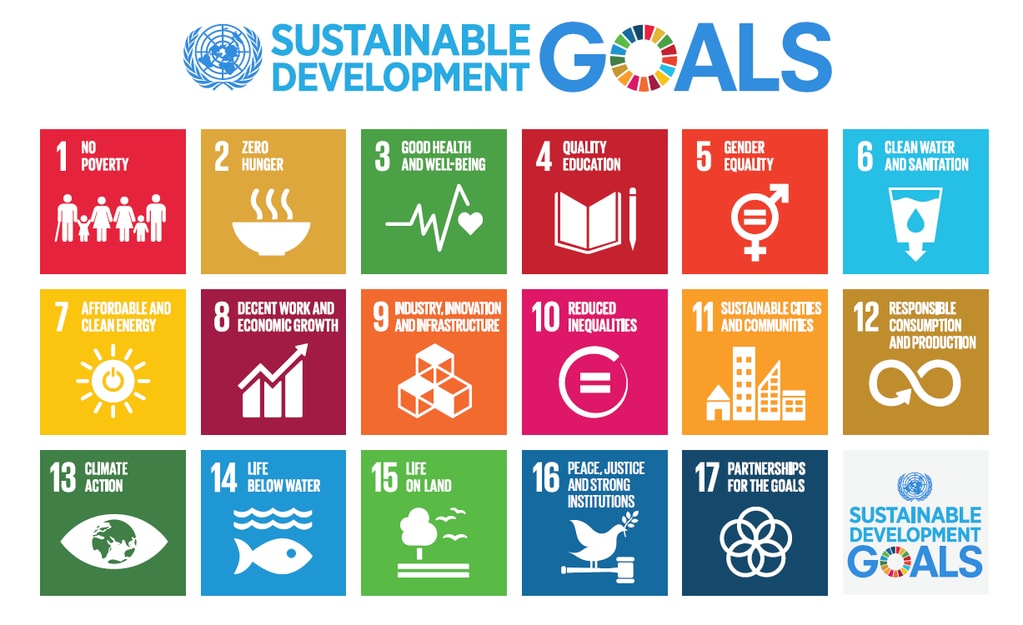During the General Affairs Council in June, the EU’s future was clearly drawn especially with regards to sustainable development.
Mark Dubrulle and the former president of the European Council Herman Van Rompuy stressed the importance of an ecological alternative form of development and claimed that putting it into practice should be a main priority for the EU.

To reach these results, the Council also highlighted the importance of the implementation by EU states of the 2030 Agenda. The Agenda has been adopted by State’s leaders at the UN in 2015 and has equal significance as the more recent climate deal ratified in Paris, given the fact that it represents a unique global agreement. It is in fact signed by all the UN member states, enfolding aims and actions that both developed and developing countries should carry out.
The Council fixed 17 goals, which will be applied by countries, in order to mobilize efforts to end all forms of poverty, fight inequalities and tackle climate change, while ensuring that no one is left behind. The new goals are unique because they call to action all countries, poor, rich and middle-income to promote prosperity while protecting the planet. More importantly, the Agenda integrates and combines two kind of policies that grew separately over the years, like development cooperation strategies and sustainability systems. Furthermore it represents a matter of discussion for civil societies, as it was analyzed in social medias by the Sustainable Development Solutions Network.
The outcome reached until now are encouraging. The EU has performed positively in climate related topics, by overcoming its original ambitions such as the 2020 greenhouse gas reduction targets, and by leading the implementation of the Paris climate accord, along with China. Now, the objective is to gradually start enforcing the Agenda 2030.
But, the achievement of the economic and social aims could be challenging. In fact, the General Affairs Council claimed that both economic and social improvement are dependent on the good management of the Earth’s natural resources and the protection of biodiversity. Nowadays, the “Green” issue is fundamental, so it is important to stop seeing it as separated from the growing insecurity problem in the world, or looking at economic advancement as a parallel issue to improve social systems.
Sustainable development must be reached across all three dimensions: Economic, Social and Environmental.
The targets fixed in the Agenda 2030 are numerous and various. For instance, states aim to achieve a substantial coverage of all the poorest and more vulnerable classes of society, ensure equal access for all men and women to an affordable higher education, such as university, and guarantee employment, decent work and an equal pay for an equal value work to all citizens, including young and disabled ones. To gain these by 2030, they need to put into effect adequate social protection systems, measures and plans.
Surely, these are not easy goals and there will be numerous obstacles in the path to achieve them. But the strong leadership of EU in many other issues has already helped in actively influencing the Agenda 2030 and its drafting.
Moreover, the Agenda represents the best way forward to “Improve progressively, through 2030, global resource efficiency in consumption and production and endeavour to decouple economic growth from environmental degradation, in accordance with the 10-Year Framework of Programs on Sustainable Consumption and Production”. For example, a way to reduce impacts on the environment is the adoption of a “circular economy”. It holds a vital role in the European Union’s future in order to help businesses and consumers to use resources in a more sustainable way. By 2030 in fact, mineral resources will be scarce, as currently the EU is over consuming them for maintaining unsustainable lifestyles which urge an absolute decrease in the use of mineral fuels.
The Council concluded by unanimously requesting the Commission to elaborate an enforcement strategy with timelines, objectives and concrete measures in all relevant EU policies. Furthermore, to identify the most relevant sustainability gaps and concerns that need to be assessed by 2030 in terms of legislation, governance structure and means of implementation and to define a clear path for consideration of the Sustainable Development Goals (SDGs) and their integration in post-2020 policies. On its side, the EU counts on other UN member states and all stakeholders, including civil society and the private sector, to contribute to the completion of the 2030 agenda.
Even though difficult challenges will have to be faced in order to put in force the Agenda 2030, the Commission should still take it as a guiding principle, along with the SDGs , in all next reviews of the major policy instruments concerning Europe’s future.
The EU must be bold and keep its pace with the Council’s decisions in order to not remain behind and lose its frontrunner position in terms of sustainability.
Visits: 139

